Affordable housing for people with I/DD is in low supply. Learn what ALSO is doing to make a difference.
Affordable housing for people with I/DD is in low supply. Learn what ALSO is doing to make a difference.
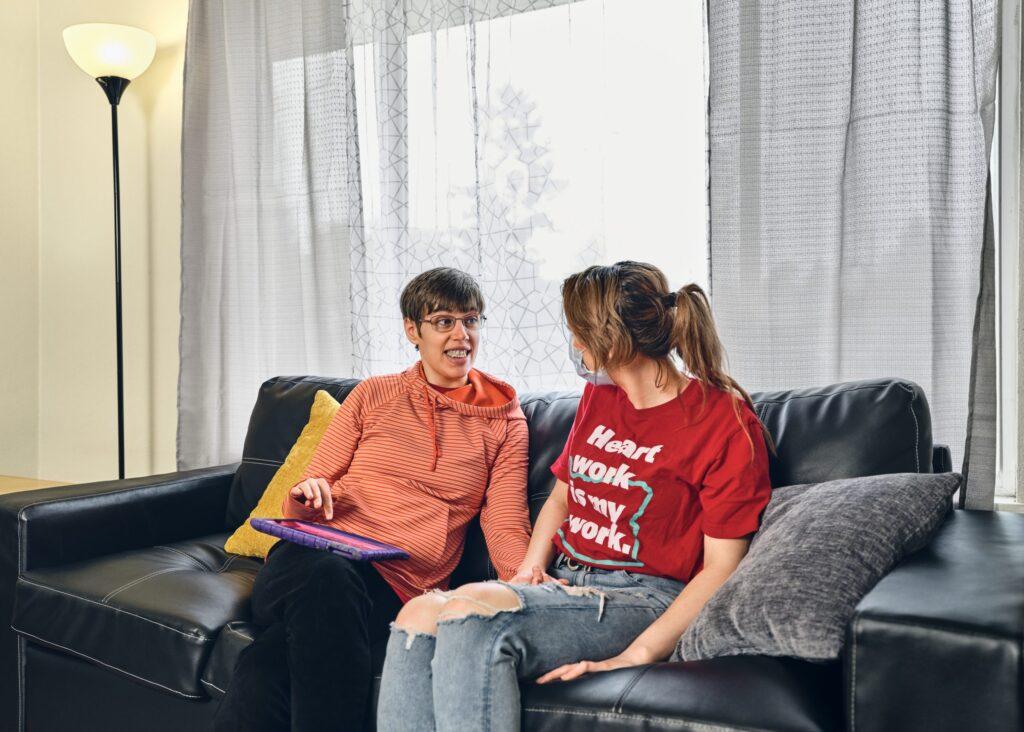
Although the terms intellectual disability and developmental disability have certain similarities, they have several distinct differences. Since 1997, we at ALSO have been paving the way for the highest standard in serving people with developmental and intellectual disabilities. We have kept up-to-date and also continuously set new standards as to what high-quality disability support services should look like. What we believe for certain is something that you as friends, family, and loved ones likely already know: that the right kind of support, encouragement, and assistance can inevitably lead to full inclusion into the fabric of any community.
We admit that the journey to full community inclusion may not be easy, but it’s always well worth it. Part of the solution is informing those people that we serve as well as all members of our society about the wide variety of supports available for safe and successful functioning in the home, workplace, and community. Even more important, is to gain insight into the remarkable contributions that people with any kind of disability can make to the community in which they live, work, and play.
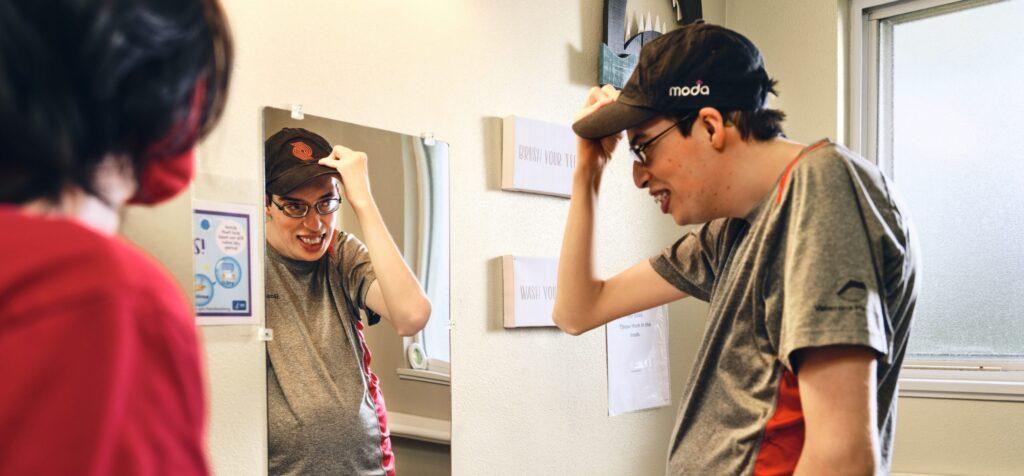
Developmental disability is a broad term that includes intellectual as well as other types of disabilities. The state of Oregon considers someone to have a developmental disability if the onset of the condition occurs prior to the age of 22. In most cases, health professionals have determined that the condition will continue indefinitely. As the name suggests, developmental disabilities interfere in the normal stages of human development, including early childhood, middle childhood (6-12 years), and adolescence.
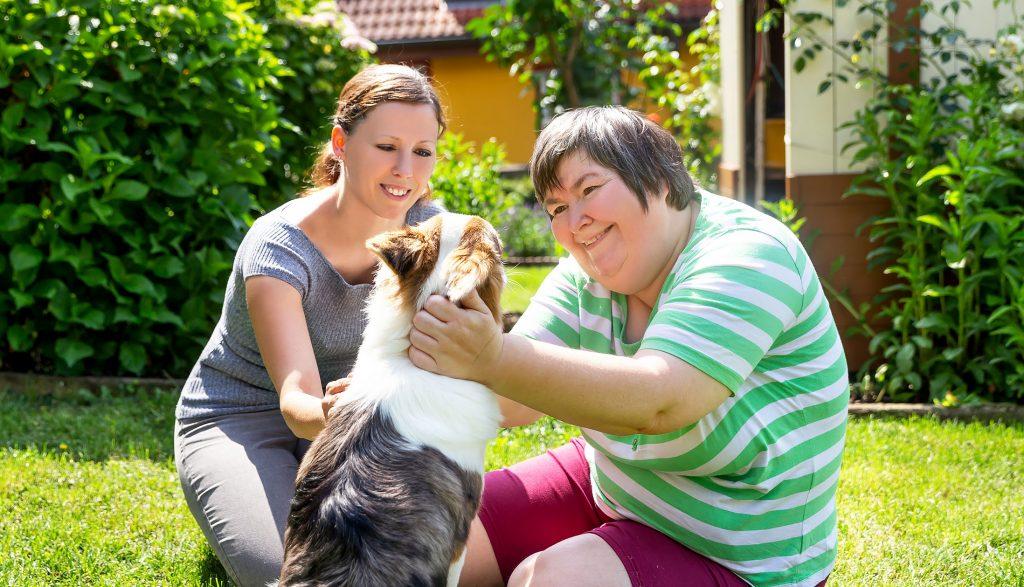
Some individuals have genetic conditions, such as Down’s, or Fragile X Syndrome. For others, problems during the birth process may lead to a developmental disability. For example, cerebral palsy can occur due to a lack of oxygen to the brain. The health of the birthing parent has been known to have an impact as well. Babies who are born prematurely have a higher probability of having developmental disabilities.
Sometimes, developmental disabilities happen well after birth. Malnourishment, or exposure to environmental toxins (such as lead), can interfere with the normal progression of developmental stages. Whooping cough, meningitis (swelling of the brain and/or spinal cord), or measles can also cause developmental disabilities. Individuals who acquire a traumatic brain injury (TBI) prior to the age of 18 or 22 are considered to have a developmental disability because TBI can interfere in the ability for the young person to progress through normal human developmental stages.
Intellectual disabilities are considered a type of developmental disability which typically starts before a child turns 18. They result in impairments in cognitive abilities, such as:
Cognitive ability is a critical factor in the development of adaptive behaviors, which is the ability to adapt to changes in the environment. This can have a major impact on social skills, emotional regulation, and other life skills.
Just like with other developmental disabilities, intellectual disability can result from genetic abnormalities, problems during the birth process, or certain childhood illnesses and trauma.
The main difference between intellectual and developmental disability is primarily a matter of scope. Intellectual disability is a specific type of developmental disability that affects intellectual functioning. Of the 200 million Americans who are living with at least one developmental disability, 65 million have intellectual disabilities. For purposes of funding and various regulatory requirements, it’s important to be aware that in many cases, someone is considered to have a developmental disability if the onset of the condition is before 22 years of age, and an intellectual disability prior to the age of 18. In addition to intellectual and cognitive ability, developmental disabilities interfere with normal human development in any or all of the following, including and not limited to:
It’s very possible for someone to have both intellectual and other types of developmental disabilities. For example, they may have difficulty using stairs as well as challenges with memory and attention. We also need to keep in mind that the same condition can manifest itself in very different ways. For instance, although someone with cerebral palsy may have extreme difficulty speaking and walking, they may have a very high level of cognitive ability. Individuals who have autism (or who self-identify as autistic) may be highly intelligent but require additional support in acquiring social skills.
Through a series of legislative changes, along with the actions of self-advocates (that is, people with disabilities), family members, dedicated human service leaders, and policymakers, the idea of full inclusion into community life has begun to materialize.
Up until the 1950s, individuals with disabilities were kept ‘out-of-sight’ in large institutions. Parents began to realize the continuously worsening conditions in which their children lived and demanded change. Their message took hold with public opinion and government reforms started to provide equal rights and protection under the law. The Americans With Disabilities Act went yet further to prohibit discrimination in employment, transportation, public accommodations, and state/local programs.
Nationwide, things started changing for the better. In Oregon, developmental disabilities advocates successfully pushed for the end of sheltered workshops in which people with disabilities received sub-minimum wages for boring, repetitive work tasks in segregated facilities. A class-action lawsuit became the catalyst for change to a supported employment environment that targets the individual’s skill set, goals, and accommodation needs.
ADDITIONAL RESOURCE: How advocates came together to transform disability services from sheltered workshops to supported employment.
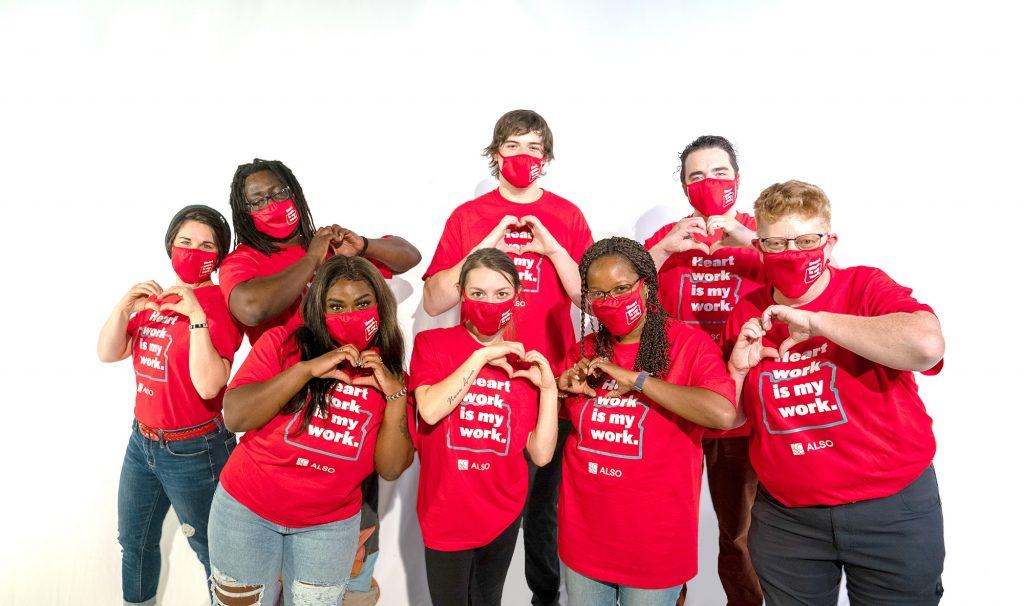
At ALSO, which stands for Advocates for Life Skills and Opportunity, we take our jobs to heart. We deeply embrace our Mission:
To promote the full inclusion of people experiencing disabilities in the life of their community.
We hold tightly to our core values as we provide the following services to the people that we serve:
So how does ALSO help people with intellectual and developmental disabilities live on their own in the least restrictive environment? How do we assist them in pursuing a job they love and the hobbies they enjoy?
We believe that everyone is a person first, regardless of the disability that they might have. All of us (thankfully), are unique individuals with goals and dreams. We have our likes and dislikes, as well as strengths and weaknesses. ALSO direct support professionals (DSPs) are expertly trained at asking the right questions and making observations to learn about the person and the disability. We do everything possible to help the people that we serve turn dreams into reality.
ADDITIONAL RESOURCE: Learn about how Mike Marble, Mike Kowdoski, Tina Schmidt, and Tanysha Quade have built successful and fulfilling businesses in the arts.
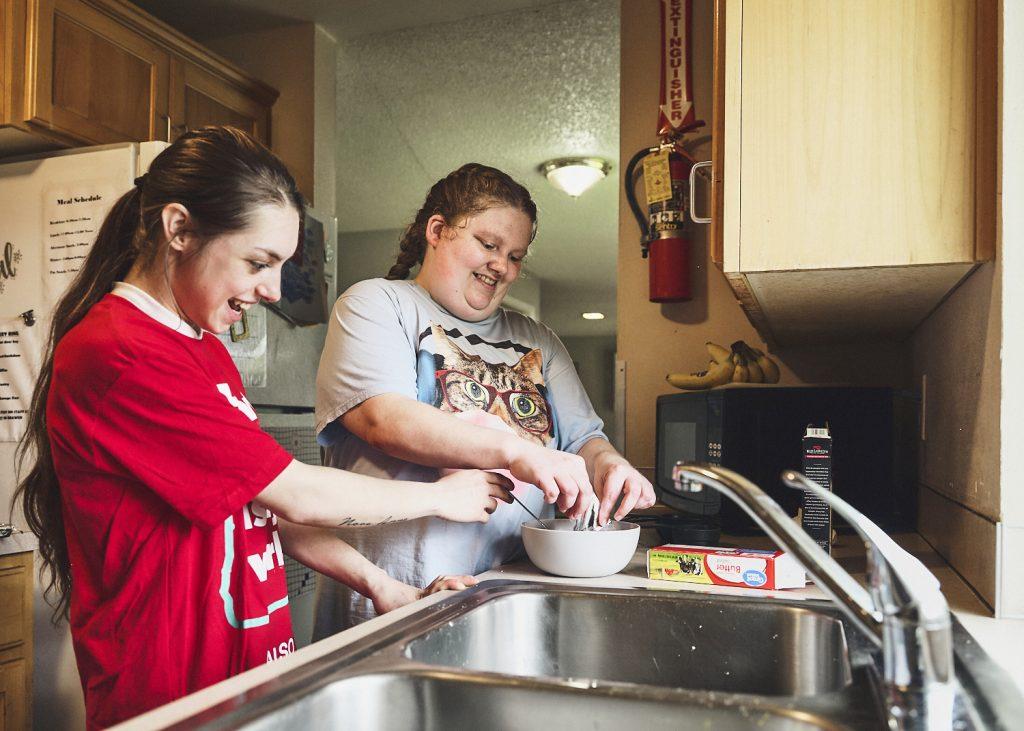
As we have learned, a person with cerebral palsy or Turner’s Syndrome will have very different strengths and challenges than someone else. There is no cookie-cutter approach when it comes to helping others meet the challenges of everyday life. At ALSO, our DSPs receive all of the necessary training to provide support as needed. Here are just a few examples:
With time and patience, people with disabilities can acquire knowledge to the same level as those without disabilities. They will keep learning and developing through life, just like everyone else.
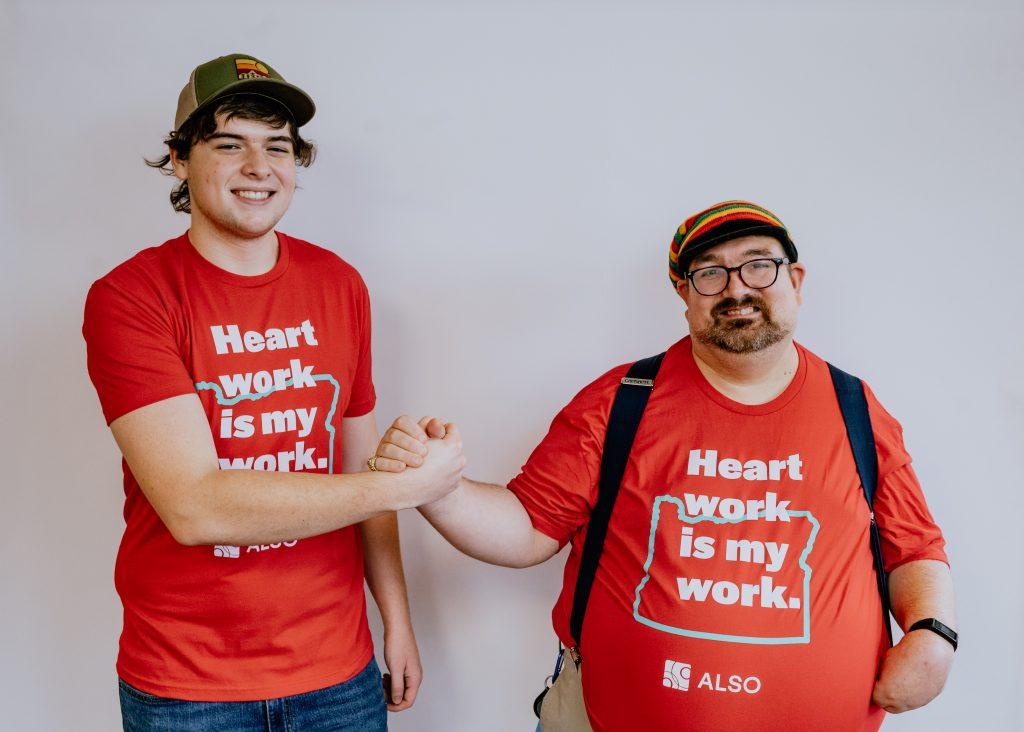
Even with so much progress, we fully emphasize that more work needs to be done. Therefore, we continue to commit our time, work, and energy as advocates for children and adults with intellectual and developmental disabilities. We are looking forward to a world where all people, whether they have a disability or not, are fully included in a welcoming and vibrant community. We will get there, one step at a time.
ALSO is a non-profit disability support services organization serving the Portland Metro area, Deschutes County, and Klamath County. We are a diverse group of advocates and professionals who help the people that we support to pursue their dreams and live the life they choose. We invite you to learn more about our Heart Work.

Sign up for our newsletter to get our latest news, content, and job opportunities.
Help us ensure that everyone has the same opportunities in their home, workplace and community. Let’s make dreams!
